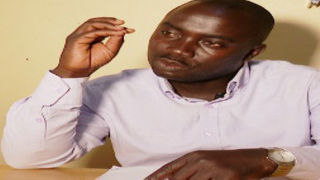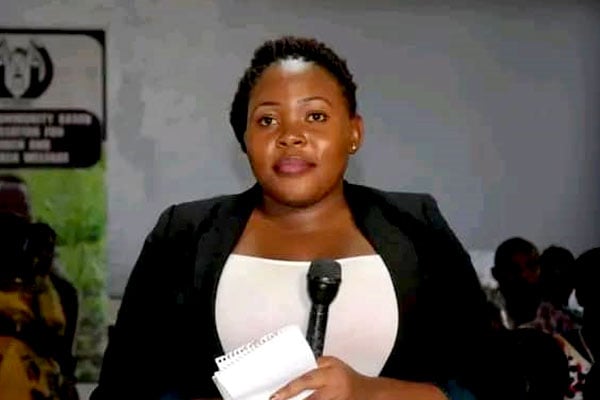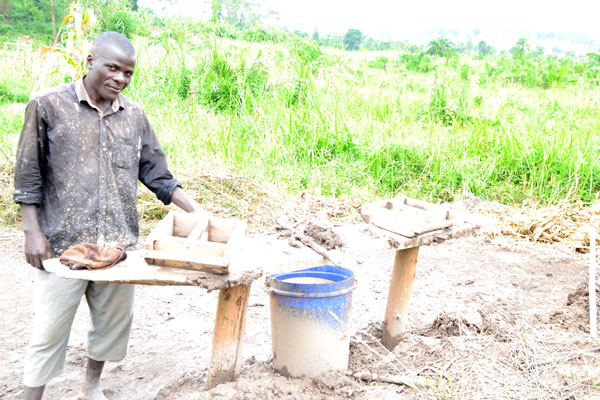
Dr Anatoli Musitwa, the proprietor of St Florence Medical Centre in Ngabano-Madudu, Mubende District. PHOTO/BARBRA NALWEYISO
|Special Reports
Prime
My Ebola Story: Patients still shun my clinic due to Ebola – Dr Musitwa
What you need to know:
- On January 11, the country declared an end to an Ebola virus outbreak that had emerged almost four months earlier and claimed the lives of 55 people.
- In this 18th instalment of our new series, Dr Anatoli Musitwa, the proprietor of a clinic in Mubende, says his team of unsung heroes and heroines did a great job during the Ebola outbreak.
Dr Anatoli Musitwa, the proprietor of St Florence Medical Centre in Ngabano-Madudu, has been struggling to attract patients to his facility ever since the last Ebola outbreak.
After the declaration of the outbreak in Mubende District by the Ministry of Health, Dr Musitwa’s health facility turned into an epicentre of the disease following claims that many people who died from the virus contracted the disease from his clinic, including the first case.
Relatives of a family who lost five members, probably to Ebola, said the first person to contract and succumb to what they had considered a “strange illness” was their 56-year-old grandmother. The other family members were three children and a 32-year-old woman.
“Each of them [deceased] was first admitted to St Florence Medical Clinic before their referral and transferred to Mubende Regional Referral Hospital,’’ Dr Musitwa says.
Mr Vicent Ssebuuma says his elder sister, Melinda Nassazi, 56, developed multiple symptoms and died on September 1.
On September 12, 2022, a 10-month-old daughter to Ssebuuma’s young brother presented with similar symptoms and died in Kiboga District.
Two days later a 2-year-old girl, who was a daughter to one of the siblings in the family, also passed on before another 10-month-old girl died at Mubende Hospital on September 18.
Separate claims by the family of an Ebola victim, Jackson Ssembule, also alleged that he contracted the disease from the St Florence facility.
Relatives told this publication that the deceased was initially treated at the clinic for chicken pox before developing a fever, diarrhoea, and bleeding days after returning from the facility.
Florence Naluyima, an Ebola survivor and resident of Kijaguzo in Madudu Sub-County, also suspects her mother Margaret Nantudde, 64, contracted Ebola from the centre.
Naluyima contracted the disease from her mother. While she survived, her mother succumbed to the disease on September 27.
“I suspect that my mother contracted the disease from that clinic. Most of the patients we met at St Florence medical clinic and later got admitted to Mubende did not come back alive. By that time, the Ebola outbreak was not yet declared in Uganda,” she says.
However, the owner of St Florence is adamant that his clinic was not a centre of infection.
“No one knew that it was Ebola, not even the referral. I don’t have any patients who died in the facility. Most of the patients died at Mubende Hospital, but people blamed my facility for spreading Ebola,” Dr Musitwa says.
The resident of Ngabano-Madudu says they indeed received patients with signs of fever and some cases were managed. Those they failed to help were referred to Mubende Hospital. “It was unfortunate that the patients we used to refer to Mubende Hospital ended up dying, which shocked us,” he says.
“Things became worse when one of my friends, Jackson Ssembule, whom we had earlier attended to and referred to Mubende Hospital, died. The hospital retained his body to carry out more investigations, only for us to hear that we were handling the Ebola Sudan strain.
“The community started thinking that Ebola was coming from St Florence Medical Centre and yet these people were coming with the same condition. It tortured us as a facility. We lost our patients and they couldn’t come here because they also feared contracting a disease,” he adds.
Dr Musitwa also insists that part of what put the centre’s reputation at stake was a lot of misinformation after the death of the centre’s nurse, Kenneth Ssendagi. It was alleged that he was a victim of the virus.
“It is not true that our nurse died of Ebola. He had all along been battling ulcers that caused bleeding,” Dr Musitwa says.
“After realising that his condition had worsened, we decided to send him to his home in Kakumiro District. After reaching home, his mother sent us a message that he was getting better. On the night of September 14, we were informed that he was taken to a health facility in a critical condition and when it was approaching 2pm on September 15, he died at Cure Medical Clinic in Mubende Town,’’ he says.
“We used to sit together, eat together and it was unfortunate that Ssendagi died and it was claimed that he died of Ebola. It shocked everybody,” Dr Musitwa adds.
He also argues that his facility was not the only health centre that handled possible Ebola victims.
“Other facilities in the area received such patients, and when they failed to treat the disease, they referred them to St Florence and we would also refer the patients to Mubende Hospital,” he says.
When the team at the clinic realised that the strange disease was Ebola and people were dying, they got scared thinking that they too had also contracted the disease. To their surprise, however, none of the staff got infected with Ebola. It was only Ssendagi whom the Ministry of Health claimed suspected to have died of Ebola.
Meanwhile, the health officials from the district, after realising that the clinic had attended to patients suspected to have had Ebola, disinfected the place and put in place handwashing facilities.
“This act changed the facility’s fortunes. When people saw the health officials descend on the place to disinfect it, they got concerned,’’ Mr Musitwa says, adding that locals frequented the place every day to ask what was going on.
Uganda was declared Ebola-free in January 2023, but three months down the road, St Florence is yet to recover. Previously, Dr Musitwa says, in a month, they would handle more than 20 patients a day. Now, the number has reduced to two patients a day, and on some days, they do not get any clients.
“We could receive patients from Kiboga, Kakumiro, Mubende, and Kyankwanzi, but the facility’s name was tarnished, it really affected me so much,” he says.
Dr Musitwa is unhappy that the facility was not recognised for the part it played in fighting the disease. He says when the Ministry of Health organised a function to declare Uganda free from Ebola, they were not invited or even thanked for the work.
“I used my own airtime and money to call the authorities informing them of the suspected cases, but we were not recognised at all. Our contribution was not appreciated,” he says.
Dr Musitwa adds that he has managed to keep the business operational despite the reduced number of patients.
“I use the little money I earn to buy drugs and other essential requirements,’’ he says
Dr Musitwa hopes that with time, the situation will get back to normal.
Since 2015
St Florence Medical Centre, which has been in operation since 2015, has a 16-bed capacity with three healthcare workers, including one doctor. It offers laboratory services, in-patient, out-patient and maternal services. It is open 24 hours a day.
It was in August 2022 that the doctor says they started noticing a strange disease was upon them. They had no idea what the strange illness was.





